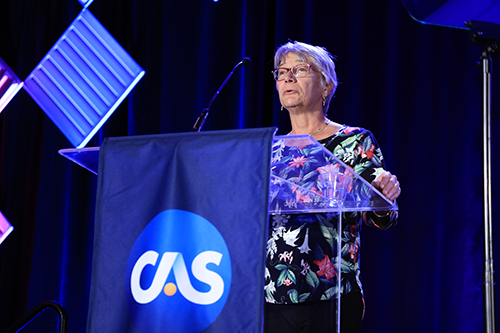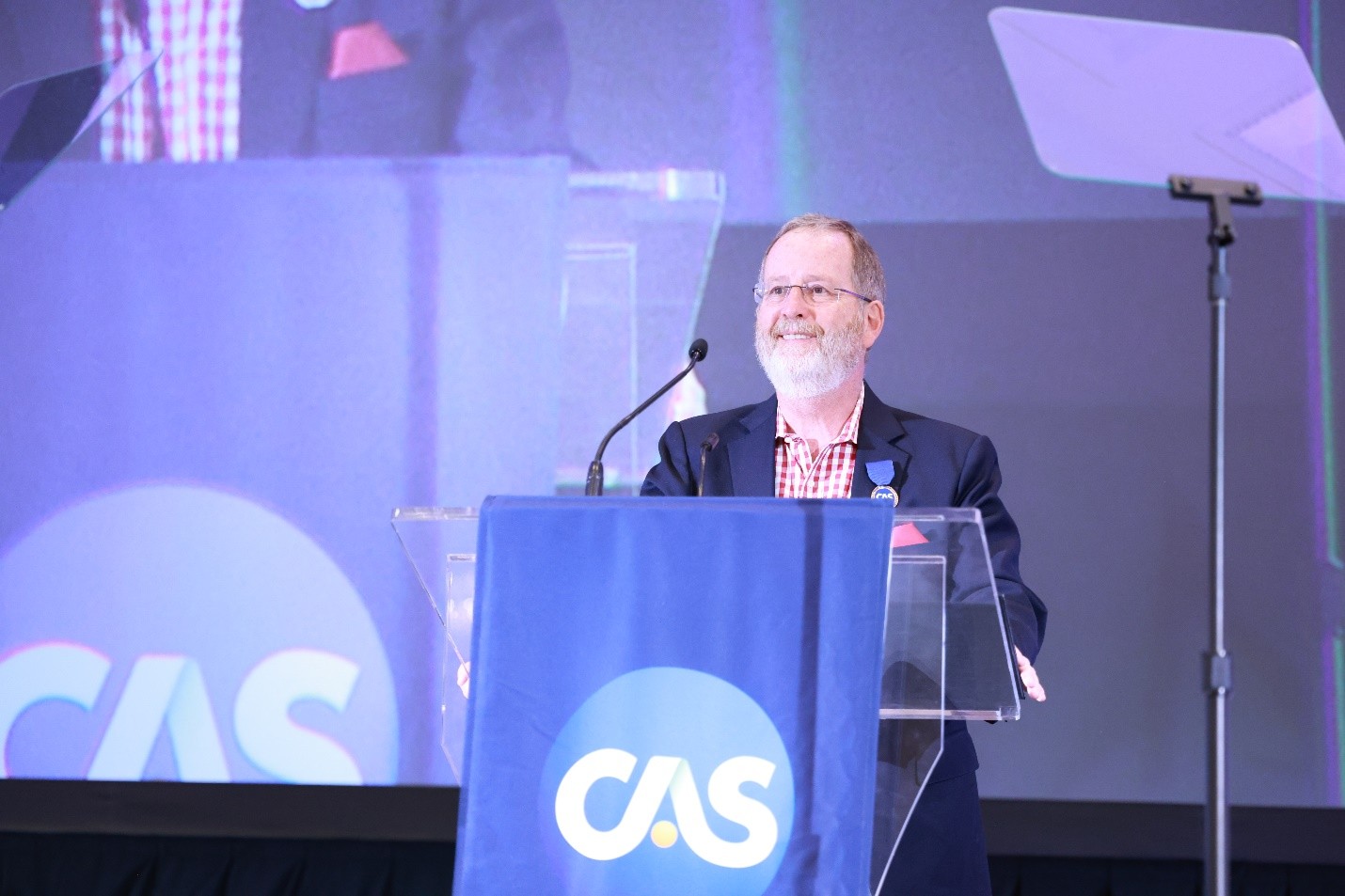
The following is an excerpt of the address to new members given at the CAS Centennial Celebration and Annual Meeting on November 10, 2014.
Over the past four months, three noted past presidents of the CAS have passed away-Charles C. Hewitt, Ruth E. Salzmann and Jerome A. Scheibl. Each had passions I would like to share with you in hopes that you will also embrace them.
Charlie Hewitt, CAS president from 1972-73, was one of the most intelligent, yet personable, people I ever knew. He could just as easily talk about esoteric mathematics as he could about nearly any other topic. His son Brian said about him “It is a rare person who is gifted with an advanced understanding and interest in mathematics while, at the same time, fluent in the written word and well-read in literature and history. Our father was one of those persons.” Charlie’s passion for good communication skills is one that is important for all actuaries.
You can be one of the world’s greatest technicians, but if you cannot communicate the results of your work to others, what value do you provide? We actuaries are, in reality, salespersons. We are usually in the position of selling our work product to our customers-be they underwriters, clients, company management, regulators, legislators or the like. We are also educators. Educating our various customers is one of the most important things we do. We must effectively communicate what we want our customers to “buy” in order to close the deal.
Charlie was also a proponent of women actuaries and played a key role in getting Ruth Salzmann elected as the first woman CAS president. Ruth was CAS president from 1978-79. She was the first woman president of any North American actuarial association …
Ruth was president at a time when the National Association of Insurance Commissioners (NAIC) was seriously talking about imposing a loss reserve opinion requirement on property-casualty insurers. CPAs said they felt qualified to issue such opinions. Ruth passionately stood up for the actuarial profession pointing out that casualty actuaries were the most qualified professionals to opine on the reasonableness of casualty loss reserves, based on their knowledge and, importantly, a willingness to be held accountable for their opinions. As a result of the arguments Ruth and others made, the NAIC voted to have the statements of loss reserve opinions signed only by actuaries …
Jerry Scheibl, who served as president from 1980-81, described the learned actuarial associations in the U. S. as the “brains” and the American Academy of Actuaries as the “mouth” of the U. S. actuarial profession. He was a passionate advocate of volunteerism and service to the profession. He frequently quoted Francis Bacon saying, “I hold every man a debtor to his profession” urging CAS members to volunteer for service on a committee, write papers and appear on panels … Jerry also worked passionately on developing a common Code of Professional Conduct and getting it adopted by each of the five U.S.-based actuarial associations-down to the last comma! …
I hope you will each develop a passion for communicating effectively, being accountable, being a volunteer serving our profession and acting professionally.
Looking to your future, the sky is the limit on ways you can apply your attributes. In recent years there has been a growth in the number of actuaries working on risk studies and predictive modeling. These are both exciting, but within the sphere of insurance. There are many industries outside of insurance that can benefit from your analytical skills and training, including other financial institutions, serving as chief risk officers in every industry, and users of big data … Embrace technology and go for it!
In closing, I would like to recall for you a statement made by another CAS past president-LeRoy J. Simon. He happens to be the president who signed my FCAS diploma. He said, “It is easier to become an actuary than to be one.” Think about that a bit.
David G. Hartman, FCAS, was elected CAS president in 1987.












